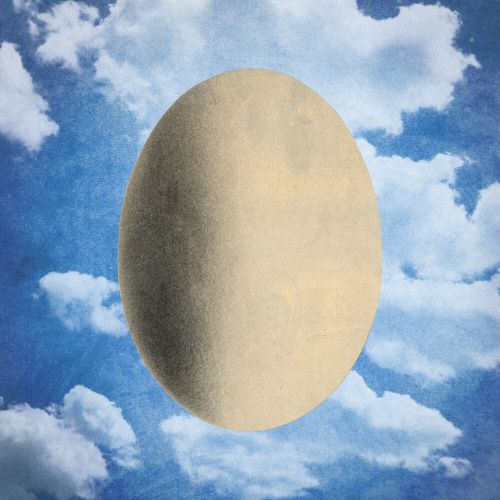For a certain generation of hip-hop fans, namely British ones, the name Jehst is synonymous with eloquence. He may well be the poster boy for so-called “UK Hip-Hop”, as a new wave of lyrical emcees established themselves at the turn of the millennium. There is a white working-class background that emanates through the rhymes, but also a Nas-like penchant for detail and an astutely chosen vocabulary that gives his verses an understated eloquence. When he dubs himself “Nas in that ‘Illmatic’ phase” it’s actually an accurate statement, as opposed to self-deluded braggadocio. There was some mild mainstream success in the early days, with “People Under the Weather” and “Run Hard”, but nothing on the level of Roots Manuva’s “Witness” or Blak Twang’s “So Rotten”. White rappers during this period were unfairly put aside Eminem, but similarly, rarely saw wider success without adopting a comedic style (Bubba Sparxxx, Princess Superstar, MC Paul Barman) and there’s further proof in later years with Macklemore, Mac Miller, and Asher Roth all unafraid of portraying a lightheartedness in their rhymes. While they are all American artists, the same could said of emcees operating around the early 2000s: Stig of the Dump, Dr Syntax, Scor-zay-zee, Skinnyman; they all had an obvious sense of humor running through their output. For as skilled as Jehst is as an emcee, his career has been built around a dreary, everyman quality that is so quintessentially English that it’s easy to overlook his achievements.
With outstanding efforts from Little Simz elevating UK Rap to another level, there’s a risk a generation of emcees could be left behind. Not from a technical standpoint, but from an album one. My point here is that those who are already familiar with Jehst, know he’s top-tier, but I can see how his style wouldn’t cross over to a wider audience. It’s very hip-hop. Crucially though, a Jehst album possesses a certain aesthetic that has always felt more intrinsically northern, than London, perhaps owing to his Huddersfield roots. There’s a wet-afternoon-sat-in-traffic feel to much of his recent material, somber in tone yet familiar and comforting in their normality. On “Mork Calling Orson”, Jehst admits to being “sick and tired of feeling uninspired” and remaining pessimistic in general. This somber viewpoint runs through the album but thankfully doesn’t derail a journey that builds with each song. Of all of Jehst’s albums, this one feels most beneficial to listen to as an album. As dumb as that sounds, in the era of playlists, “Mork Calling Orson” bears the hallmarks of a CD release. At twelve, skit-free tracks you’re presented a lean, musically rich experience that effectively showcases one of the UK’s greats in a stage of his career where many would reiterate what their fanbase wants to hear.
My favorite track, “Doctor”, has more energy that addresses the need for a shot of adrenaline, which the Huddersfield emcee has often included on previous albums to great effect. 2003’s “Move Back”, 2011’s “England” or 2006’s head-nodder “Braindead” with Stig of the Dump; he’s not afraid to throw a lively song into the mix.
Jehst albums have always sounded wise beyond their years, but can also be susceptible to feeling too safe. The fact that this album refers to the Mork and Mindy Show, which aired in the 1970s and isn’t shown in the UK these days, only adds to the insular notion of the content. Robin Williams, Bill and Ben, and Mayor Quimby (from The Simpsons) are all outdated references in 2023, but reveal an artist escaping to reference points from their own experience. Where some use music to escape from the realities of a world still suffering economically, politically, and with the global warming crisis awaiting us all, Jehst’s dry commentaries can feel bleakly close to home. Yet. he’s created a record here that never feels depressing, instead, it invites you in with open arms. Production is consistently strong, often sounding blockbuster-like, successfully navigating the treacherous “nostalgia rap” bracket some of these beats could veer into.
“Wild Herb” is infectious, utilizing the emcee’s underrated singing voice, and “Lonely World” is even more successful, making use of guest vocalists CW Jones and Sindysman. “One Horse Town” feels like the lone reach to a wider audience, but it’s the one song I wasn’t as keen on, boasting a hook that does drag Jehst into the dreaded, dreary territory. With themes such as loneliness, self-existential dread, and depression, it’s an admittedly carefully executed album that can occasionally feel a bit too grey, depending on one’s mood.
Jehst’s music is characterized by his intricate wordplay and storytelling abilities, and he’s as good as he’s ever been on what’s surprisingly only his sixth album. The melancholic approach remains part of the Jehst brand, but there’s plenty here to get energized about. “Flight to L.A.” could be an Alchemist or Evidence beat – maybe Beat Butcha’s been hanging out in L.A. too much. It’s a welcome change at the midpoint of the album, proving Jehst sounds great over what’s essentially an electric guitar version of Freeway’s “What We Do”. It’s not all thumping kicks and crashing snares either. “Autumn Nights” is as good as a drumless instrumental, a duet with Confucius MC (who appears three times on the album), as is the final song “Skyline”.
There wasn’t much room for Jehst to grow lyrically, so it’s great to hear him grow as an artist. Of all the white rappers in hip-hop history, he’s one of few that have amassed an acclaimed discography without gimmickry. Regardless of race, he’s one of the greats, full stop. “Mork Calling Orson” is one of Jehst’s best albums, and it will likely age as well as his previous material has.

